With the surge in the adoption of solar energy in Australia, there is also a growing interest in maximising it. Smart solar systems are one promising solution being explored today. Here, we will explore the integration of solar panels with smart home systems, highlighting the benefits of enhanced energy management and monitoring for homeowners.
Smart homes
Smart homes use cutting-edge technologies to enhance security, comfort and efficiency. There are several key features a smart home has:
- Energy management: Smart homes use technology to manage energy requirements. This allows homeowners to monitor and control their energy usage, identifying opportunities to optimise their consumption and maximise their benefits.
- Automation: Automation controls appliances and the environment remotely, boosting homes’ efficiency today. Homeowners can program their smart home devices based on their needs.
- Security: Smart homes have features that work with other systems to improve safety and security, even when homeowners are not home.
These features play a vital role in boosting a home’s overall efficiency. Pair it with solar systems, and homeowners get significant savings and more benefits in the long run.
Smart solar systems
Smart solar systems combine solar panels with advanced technology to optimise energy production and usage. Unlike traditional solar setups, which primarily generate electricity, smart solar systems incorporate additional components for intelligent energy management.
The key components of a smart solar system are:
- Solar panels
- Inverters
- Batteries
- Smart home devices
What sets smart solar systems apart is the integration of smart home devices, such as energy monitors, thermostats and appliances. These devices communicate with the solar system to optimise energy usage in real-time, ensuring efficient operation and maximising cost savings.
Aside from generating renewable energy, smart solar systems allow homeowners to manage and control their energy consumption. This results in better overall efficiency and sustainability.
When considering integrating smart home devices into your solar system, partnering with a reputable provider like Energy Matters can ensure seamless compatibility and optimal performance. Get FREE solar quotes from Energy Matters and take the first step toward a smarter, more efficient energy solution for your home.
Why you should integrate solar energy in smart homes
Gone are the days when homeowners were only after the technology delivered by the latest innovations. With the rising electricity prices, climate crisis, and more, more Australians are moving to integrate solar energy into their smart homes.
Below are the reasons you should consider integrating solar energy in smart homes:
- Cost savings: The biggest benefit of using solar energy in smart homes is the cost savings. Homeowners can reduce their reliance on the grid by generating energy from sunlight, leading to lower energy bills over time.
- Energy independence: By generating electricity, homeowners can mitigate the impact of energy price fluctuations and reduce their vulnerability to blackouts.
- Environmental impact: With solar power, homeowners can reduce their carbon footprint. This is because solar energy is clean and sustainable.
Smart home systems that work well with solar panels
Here are some of the top smart home systems to consider getting that work well with solar panels:
Smart thermostats
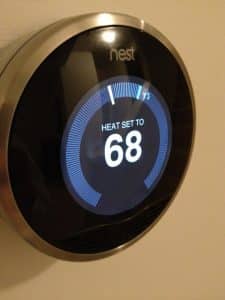
These can coordinate with solar panels to adjust heating and cooling settings based on energy production and consumption patterns. When you manage temperature settings intelligently, smart thermostats can help maximise energy savings and comfort levels.
Energy monitoring systems
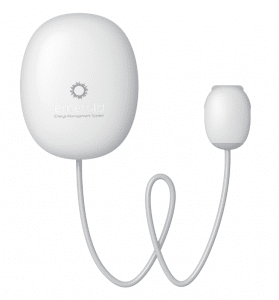
Energy monitoring systems monitor energy production and consumption in real-time. They provide homeowners with valuable insights into their energy usage. The ability to visualise energy data allows residents to identify opportunities to optimise energy usage and boost the self-consumption of solar energy.
Smart lighting systems
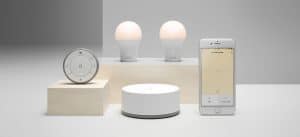
These can be programmed to adjust lighting levels based on available solar energy. When integrated with solar panels, smart lighting systems can automatically dim or turn off lights during periods of low sunlight to conserve energy.
Smart appliances
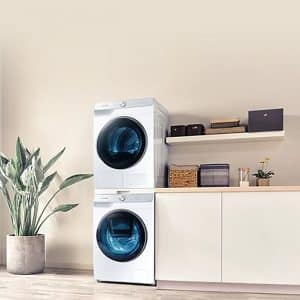
Some smart appliances, such as energy-efficient refrigerators, washing machines and dishwashers can be integrated with solar panels to prioritise energy usage when solar energy production is high. They help reduce reliance on the grid during peak demand times and lower overall electricity costs.
Energy storage systems
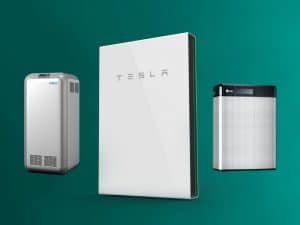
Home battery systems store excess solar energy generated during the day for use during periods of low sunlight or high energy demand. Combining solar panels with energy storage will allow homeowners to maximise self-consumption of solar energy and achieve greater energy independence.
Home automation platforms
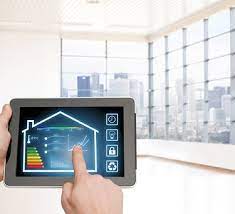
A comprehensive home automation platform lets property owners create customised routines and automation that optimise energy usage based on solar panel performance. These platforms can integrate with various smart devices to create a fully connected and efficient home ecosystem.
For homeowners considering solar energy solutions, Energy Matters offers a convenient way to explore options with free solar quotes. Integrating smart thermostats with solar panels allows for precise adjustments in heating and cooling, enhancing energy efficiency and comfort. Get your FREE solar quotes now.
Considerations for implementing smart solar systems
The first step when considering the use of smart solar systems is to weigh the financial aspects carefully. This involves assessing the upfront costs of acquiring and installing the necessary equipment against the potential long-term savings on energy bills.
Explore various incentives, rebates, and financing options to alleviate initial expenses and maximise the return on investment over the system’s lifespan.
Moreover, compatibility with the home’s existing infrastructure and electrical systems is also vital. Conduct a thorough evaluation to ensure the roof is structurally sound and suitable for solar panel installation. This also means that homeowners must be prepared to make any necessary upgrades or modifications to accommodate the system effectively.
Finally, understand the maintenance requirements to ensure continued efficiency and longevity. Regular cleaning, monitoring, and occasional repairs may be necessary. Investigate available warranty options and ongoing support services from suppliers or installers to guarantee optimal performance and reliability throughout the system’s lifespan.
Integrating solar energy into smart homes presents a significant opportunity for Australian homeowners to enhance energy management, reduce costs, and contribute to environmental sustainability. Smart home systems, characterised by their energy management, automation, and security features, can be seamlessly integrated with solar panels to optimise energy usage and maximise benefits.
Energy Matters has been in the solar industry since 2005 and has helped over 40,000 Australian households achieve energy independence.
Complete our quick Solar Quote Quiz to receive up to 3 FREE solar quotes from trusted local installers – it’ll only take you a few minutes and is completely obligation-free.
FAQ
What is a smart solar energy monitoring system?
A smart solar energy monitoring system is a technological solution that allows homeowners to track and manage the performance of their solar panels and overall energy consumption in real-time. These systems typically include monitoring devices or software that provide detailed insights into solar energy production, household energy usage, and system efficiency.
Can you use solar panels in conjunction with smart home products?
Solar panels can be seamlessly integrated with various smart home products to create a more efficient and interconnected home ecosystem. Smart home products such as smart thermostats, lighting systems, appliances, and energy monitoring devices can communicate with solar panels to optimise energy usage, increase self-consumption of solar energy, and enhance overall energy management.
What is solar system integration?
Solar system integration refers to the process of combining solar panels with other energy-related technologies, such as energy storage systems, smart home devices, and energy management software, to create a comprehensive and efficient renewable energy solution. Solar system integration aims to maximise solar energy’s performance and benefits by optimising energy production, storage, and usage while minimising reliance on the grid.
What does a smart solar panel do?
To enhance its functionality and performance, a smart solar panel incorporates advanced technology, such as built-in sensors, microprocessors, and communication capabilities. Smart solar panels can monitor their energy production, temperature, and performance in real-time, allowing for proactive maintenance and optimisation. They can also communicate with other smart home devices, energy management systems, and utility grids to optimise energy usage, increase Itethe self-consumption of solar energy, and contribute to a more efficient and sustainable energy ecosystem.













































